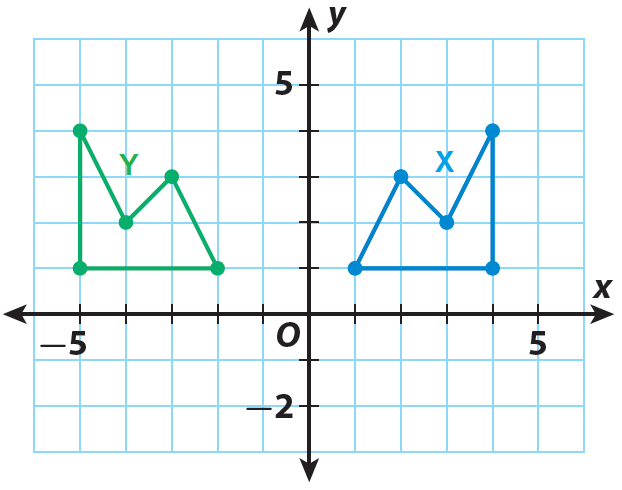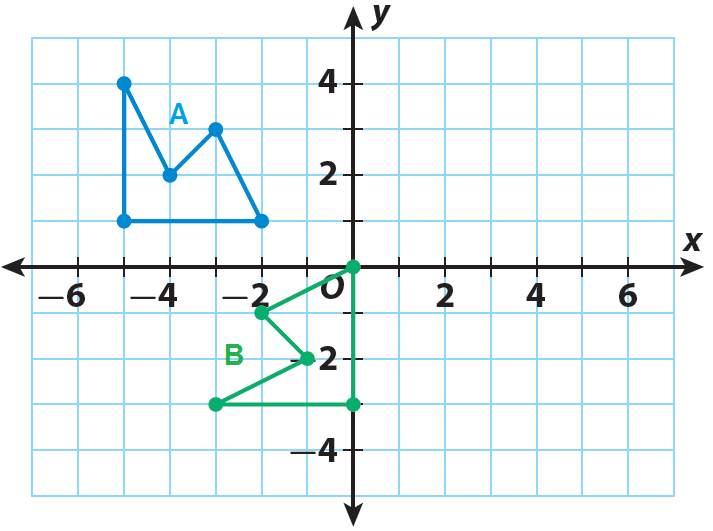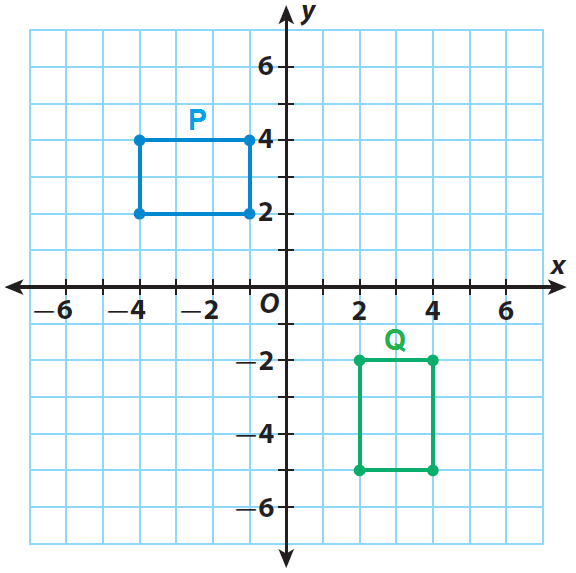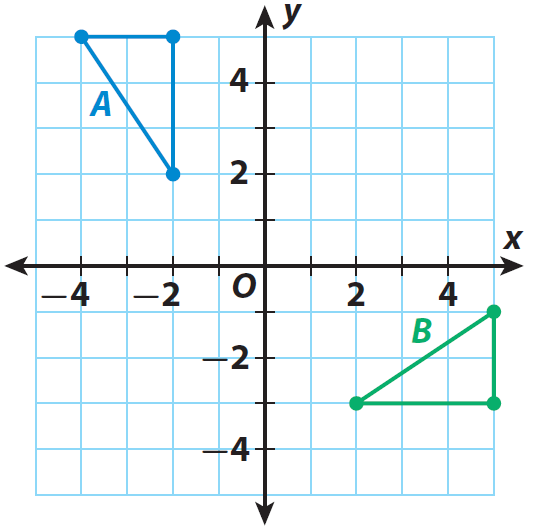CONGRUENT FIGURES
Under a translation, reflection, or rotation, the segments and their images have the same length and angles and their images have the same measure
We can say that the two figures are congruent, if one can be obtained from the other by a sequence of translations, reflections, and rotations. Congruent figures have the same size and shape.
When we are told that two figures are congruent, there must be a sequence of translations, reflections, and/or rotations that transforms one into the other.
Example 1 :
Identify a sequence of transformations that will transform figure X into figure Y.

Solution :
To transform figure X into figure Y, you need to reflect it over the y-axis and translate one unit to the left. A sequence of transformations that will accomplish this is
(x, y) → (-x, y) and (x, y) → (x - 1, y)
Example 2 :
Identify a sequence of transformations that will transform figure A into figure B.

Solution :
Any sequence of transformations that changes figure A into figure B will need to include a rotation. A 90° counterclockwise rotation about the origin would properly orient figure A, but not locate it in the same position as figure B.
The rotated figure would be 2 units below and 1 unit to the left of where figure B is. We would need to translate the rotated figure up 2 units and right 1 unit.
A sequence of transformations is a 90° counterclockwise rotation about the origin,
(x, y) → (-y, x), followed by (x, y) → (x + 1, y + 2)
Example 3 :
Identify a sequence of transformations that will transform figure P into figure Q.

Solution :
A sequence of transformations that changes figure P to figure Q will need to include a rotation. A 90º clockwise rotation around the origin would result in the figure being oriented as figure Q.
However, the rotated figure would be 6 units above where figure Q is. We would need to translate the rotated figure down 6 units.
A sequence of transformations is a 90º clockwise rotation about the origin,
(x, y) → (y, -x), followed by (x, y) → (x, y - 6)
Example 4 :
Identify a sequence of transformations that will transform figure A into figure B.

Solution :
Rotation 90° clockwise about origin, translation 5 units down.
(x, y) → (y, -x), (x, y) → (x, y - 5)
Kindly mail your feedback to v4formath@gmail.com
We always appreciate your feedback.
©All rights reserved. onlinemath4all.com
Recent Articles
-
Digital SAT Math Problems and Solutions (Part - 150)
Apr 25, 25 11:46 AM
Digital SAT Math Problems and Solutions (Part - 150) -
AP Calculus AB Problems with Solutions (Part - 19)
Apr 24, 25 11:10 PM
AP Calculus AB Problems with Solutions (Part - 19) -
AP Calculus AB Problems with Solutions (Part - 18)
Apr 24, 25 11:06 PM
AP Calculus AB Problems with Solutions (Part - 18)
